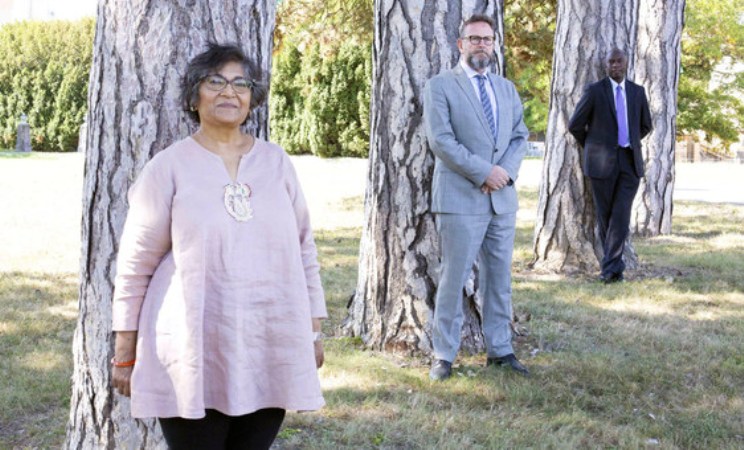South Sudan regrets sexual abuses in Malakal, vows strong action
September 27, 2022 (JUBA) – South Sudan has regretted sexual abuse reported to have taken in Malakal, pledging to take strong actions against perpetuators.
The country’s Interior minister, Mahmoud Solomon Agok said the leadership regrets incidents of sexual violence documented in various places across the country.
He pledged the Revitalised Transitional Government of National Unity’s (R-TGoNU) commitment to work together with the victims, partners, and human rights groups to identify and ensure the perpetrators are held accountable for their actions.
Agok said the culture of silence by the victims to report the incident has been allowing the perpetrators to get away without being identified and be held to account for the actions.
“We have not received a formal report but what we have read in the media is regrettable. We will work together with victims and partners to identify the perpetrators, those who commit such despicable against their own sisters, wives and daughters. This is a shameful and unacceptable behaviour”, he said.
In a report issued last week, the UN Commission on Human Rights in South Sudan said the war in Ukraine has drastically cut funding for emergency medical and psychosocial care for victims of sexual violence.
The report follows members of the Commission’s visit to Western Equatoria and Unity states.
“It is difficult to comprehend that we are now seeing women in South Sudan who have been gang raped in the conflict up to five times in the last nine years. Just imagine what it means to be raped by multiple armed men, pick yourself up for the sake of your children, and then for it to happen again and again and again,” said Yasmin Sooka, Chairperson of the Commission.
“These women are asking us when it will stop – 2013, 2016, 2018, 2021, and now in 2022 – they say they keep telling their stories and nothing changes,” she added.
During a visit completed this week to Western Equatoria, members of the Commission’s Secretariat were told that survivors were like zombies, physically and emotionally dead, after experiencing so many brutalizing rapes since 2013. The most recent case the Commission documented occurred last month, but a very substantial number of victims are believed never to report the incidents, especially if they live surrounded by the perpetrators.
The youngest victim, according to the Commission, was a 7-year old girl left for dead after being abducted from her home by two men who then raped her.
Accessing medical and trauma care is increasingly difficult for victims as services vanish. In Unity State, the Commission saw toddlers playing with used syringes scattered on the ground around a destroyed medical clinic, while in other places, learned that health workers have fled their posts in fear.
Non-governmental organisations are left to fill the gap but they report their funding has been massively cut even though there is an upsurge in demand, especially for psychosocial services, and for awareness outreach about kits that if used in time can prevent pregnancy and sexually transmitted diseases. In several interior villages where the violence is occurring, there is simply no service at all with the result that women are not bothering to report the repeated violations.
“It is not that there is a lot of sexual violence in South Sudan. It is that for half the population – women and girls – sexual violence is how they primarily experience conflict. And it is not that sexual violence ebbs and flows – it is going on all the time, largely unseen. It is only that we cannot document it consistently throughout the country and that the international community’s attention is elsewhere,” said fellow Commissioner, Barney Afako.
In Unity State and rural parts of Western Equatoria, there is no formal court to deal with serious crimes like murder and rape, only customary courts. While in some places, women told the Commission when they reported crimes by the military to the police, the cases had routinely handed them over to the military rather than being investigated by the police.
“We talk a lot about impunity in South Sudan but for victims, there is often no pretense of judicial recourse. Women raped by armed forces while collecting firewood are threatened with death if they report it. And often the police are too ill-equipped to do their job – they cannot arrest a soldier who is better armed and protected,” said Commissioner Andrew Clapham.
The Commission saw very young girls with babies around military bases and heard multiple accounts of soldiers from both government and opposition forces abducting women. In other instances, displaced families reportedly left camps because of hunger and went home to cultivate crops or collect firewood, only to be attacked.
In March 2016, the Human Rights Council established the Commission on Human Rights in South Sudan and mandated it to collect and preserve evidence of human rights violations and related crimes. The Commission is also tasked with providing technical assistance to the Government of South Sudan to establish a holistic transitional justice programme.
(ST)

